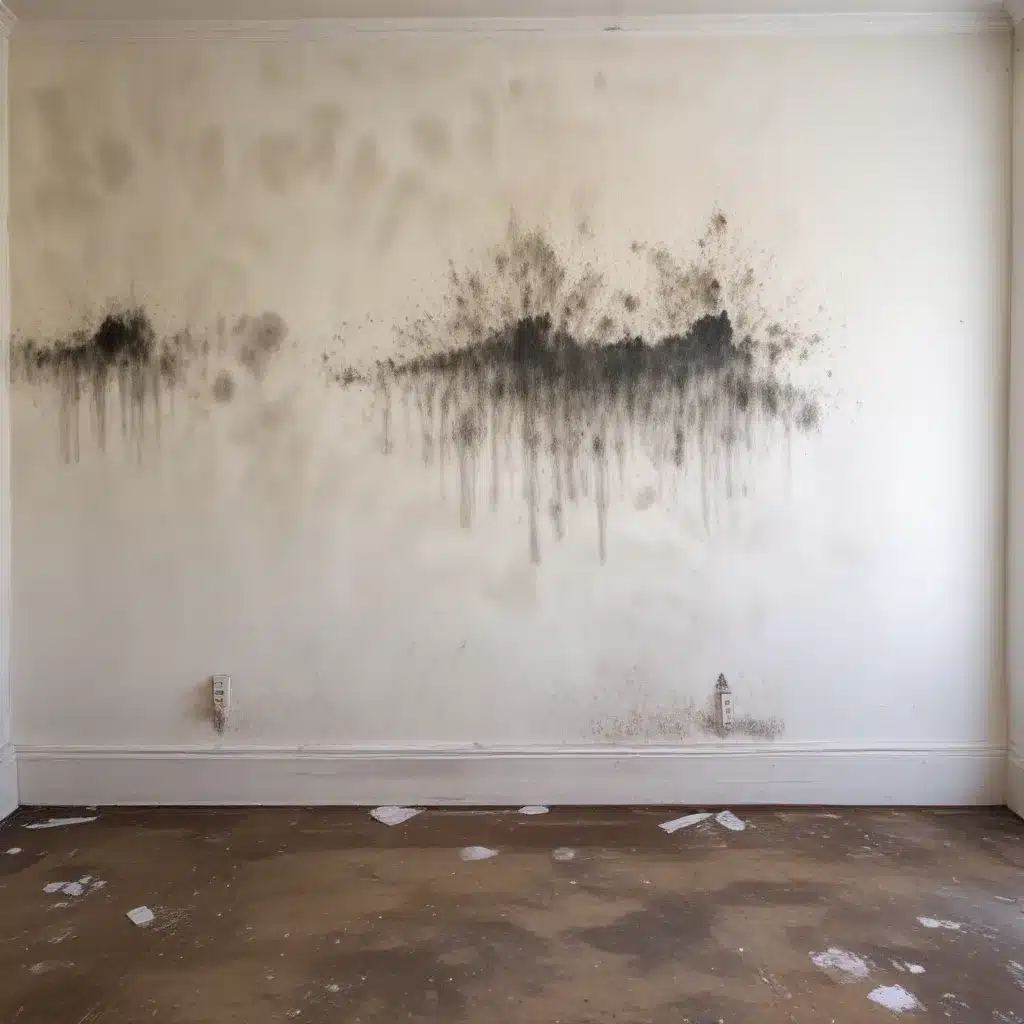
Understanding the Mold Challenge in Multifamily Homes
As an experienced water damage restoration specialist, I’ve seen firsthand the devastating impact that mold can have on multifamily housing communities in the Orlando area. Mold is a persistent and pervasive problem that requires a comprehensive, collaborative approach to effectively address.
One of the key challenges in multifamily housing is the interconnected nature of the living spaces. When water damage or moisture issues arise in one unit, the potential for mold growth can quickly spread to neighboring apartments, impacting multiple families. This can create a complex and costly situation for property owners and managers, as well as a significant health concern for the residents.
Identifying the Root Causes
To effectively tackle mold in multifamily housing, it’s essential to understand the underlying causes. Oftentimes, the culprit is not just the visible mold growth, but the underlying moisture problems that are fueling its proliferation. These can include:
- Plumbing Leaks: Aging or faulty plumbing systems can lead to water leaks, which create the ideal conditions for mold to thrive.
- Roof and Window Leaks: Poorly maintained roofs, windows, and other building envelope components can allow water infiltration, contributing to mold growth.
- Inadequate Ventilation: Insufficient air circulation and ventilation in kitchens, bathrooms, and other high-moisture areas can trap humidity and foster mold development.
- Flooding and Storm Damage: Extreme weather events and natural disasters can cause significant water intrusion, overwhelming the building’s ability to dry out and leading to extensive mold proliferation.
By addressing these root causes, property owners and managers can take proactive steps to prevent mold from taking hold in the first place, rather than just reacting to the visible symptoms.
Collaborative Mold Remediation Strategies
Tackling mold in multifamily housing requires a collaborative approach that engages all stakeholders, including property owners, managers, residents, and mold remediation professionals. Here are some key strategies to consider:
Communication and Transparency
Open and transparent communication is essential. Property managers should regularly educate residents on the importance of reporting any moisture issues or mold sightings promptly. This allows for early intervention and prevention of larger-scale mold problems.
Resident Engagement
Residents play a crucial role in maintaining healthy living environments. Provide residents with information on mold prevention, such as proper ventilation, moisture control, and prompt reporting of any water leaks or damage. Empower them to be active partners in the mold remediation process.
Proactive Inspections and Monitoring
Routine building inspections and moisture monitoring can help identify potential mold-conducive conditions before they become major problems. This allows for timely intervention and preventative maintenance to address issues before mold takes hold.
Comprehensive Mold Remediation
When mold is discovered, it’s essential to enlist the services of experienced mold remediation professionals. They can properly assess the extent of the issue, develop a tailored remediation plan, and ensure the affected areas are thoroughly cleaned and restored to a safe, mold-free condition.
Coordinated Efforts Across Units
In a multifamily setting, mold remediation efforts must be coordinated across multiple units to address the interconnected nature of the problem. Prompt communication, planning, and collaboration between property managers and residents are crucial to ensure a comprehensive and effective resolution.
Ongoing Monitoring and Maintenance
Even after mold remediation, it’s important to maintain vigilance and continue monitoring the property for any recurring moisture issues or mold growth. Proactive maintenance and regular inspections can help prevent future mold problems and protect the health and well-being of all residents.
Navigating Insurance Challenges
The financial impact of mold remediation in multifamily housing can be significant, and navigating the insurance claims process can be complex. Property owners and managers should be well-versed in the relevant insurance policies and coverage options, as well as the documentation required to support their claims.
One key strategy is to work closely with experienced water damage restoration and mold remediation professionals who can provide detailed assessments, invoices, and other evidence to substantiate the claim. By working collaboratively with insurance providers, property owners can increase the likelihood of securing the necessary funding to address mold issues effectively.
Embracing Emergency Preparedness
In the Orlando area, where extreme weather events are a common occurrence, property owners and managers must be proactive in their emergency preparedness efforts. This includes developing detailed plans for responding to water damage, flooding, and other disasters that can lead to mold growth.
By having a well-coordinated emergency response protocol in place, property managers can minimize the impact of these events and ensure a swift and effective mold remediation process. This can include pre-identifying trusted mold remediation partners, establishing communication channels with residents, and stockpiling essential equipment and supplies.
Ongoing Education and Training
Continuous education and training are essential for all stakeholders involved in managing mold issues in multifamily housing. Property managers, maintenance staff, and residents should stay up-to-date on the latest mold prevention and remediation best practices, as well as any changes in relevant regulations or industry standards.
Collaboration with local authorities, public health agencies, and industry organizations can provide valuable resources and support. By staying informed and proactive, property owners and managers can better protect the health and safety of their residents while minimizing the long-term costs and disruptions associated with mold.
Conclusion
Mold removal in multifamily housing is a complex and multifaceted challenge, but with a collaborative, comprehensive approach, it can be effectively addressed. By understanding the root causes, implementing proactive strategies, navigating insurance obstacles, and embracing emergency preparedness, property owners and managers in the Orlando area can create healthier, more resilient living environments for their residents.
At Orlando Water Damage Restoration, we are committed to partnering with multifamily housing communities to tackle mold and water damage issues. Our team of experienced professionals is dedicated to providing tailored solutions that address the unique needs of each property and prioritize the safety and well-being of all occupants. If you’re facing mold challenges in your multifamily housing community, don’t hesitate to reach out to us for guidance and support.

